- 07592-250373 , 90099-92011 , 91799-49206
- info@satipoly.ac.in


DIPLOMA IN CHEMICAL ENGINEERING


Department of Chemical Engineering
Department of Chemical Engineering is established in the year of 2010 with intake of 60 seats under the self finances scheme. now intake is 90 seats. department has well equipped labs. department has top position in placement in the institute. entry qualification is 10th passed with science & maths. Chemical Engineering is the set of techniques and ideas used to transform unusable chemicals and raw materials into finished goods. The field of Chemical Engineering is very promising and has a bright scope. Chemical Engineers are the ones who can make a difference in society by increasing food production, generating energy and protecting the environment. They also contribute to developing electronics and improving the environment
Why Chemical Engineering?
Chemical Engineering has bright career opportunities in India and in the Gulf countries as it is a booming market for fertilizers, petroleum, petrochemical, tyre, API, pharmaceuticals, paint, cement and food processing industry. Diploma holder, works as Chemical Engineer, Trainee, Apprentice, Shift In-charge etc. Scope in Chemical Engineering is good and evergreen. Engineers with specialization in the field are always in demand. Chemical engineers develop, design new processes, or improve existing processes to develop useful products and also responsible for managing resources and ensuring human health & safety. Along with it, chemical engineers are also involved in plant design operations and modeling.


Vision
To be a leading provider of comprehensive and industry-relevant education in Chemical Engineering, empowering students with the knowledge, skills, and ethical values to excel in the dynamic field of chemical processes and contribute to sustainable development for society.
Mission
We Aim to :-
- Foster a solid foundation: Equip students with a strong theoretical understanding and practical skills in chemical engineering principles, processes, and technologies.
- Develop critical thinking and problem-solving abilities: Nurture students’ analytical and problem-solving skills, enabling them to identify, analyze, and propose innovative solutions to real-world engineering challenges
- Promote industry relevance: Maintain strong industry partnerships to ensure our curriculum aligns with current industry needs and practices, enabling students to seamlessly transition into professional roles and contribute effectively to the chemical engineering field.
- Cultivate ethical and sustainable practices: Instill a sense of responsibility and ethics among students, emphasizing the importance of sustainable practices, environmental stewardship, and safety in chemical engineering processes.


NO DATA FOUND


Our Faculties
NO DATA FOUND


Laboratories:
Mass Transfer Operation Lab
Heat Transfer Operation Lab & Fluid Flow Operation Lab
Mechanical Operation Lab
Chemical Reaction Engineering Lab
Petroleum Refinery Lab
Fluid Flow Operation


ACHIEVEMENTS:
In the purview industry and institute – interaction, BORL Bina sponsored a skill development program under CSR (Corporate Social Responsibility) conducted by CRISP. Over the course of five years, the programmed has provided valuable opportunities for students to enhance their skills and gain employment in renowned industries.
Such collaborative efforts between industry and institutes play a crucial role in bridging the gap between theoretical knowledge and practical skills required in the job market. By providing students with industry-relevant training and exposure, these programs greatly increase their employability and career prospects.
Many students have been able to secure placements in various renowned industries through this program. This not only benefits the students by offering them valuable job opportunities but also contributes to the overall economic growth of the region by nurturing a skilled workforce.
Collaborative initiatives like this demonstrate the positive impact that can be achieved through partnerships between industries and institutions. This ensures that students are equipped with the necessary skills and knowledge demanded by the job market, leading to a more prosperous and sustainable future.
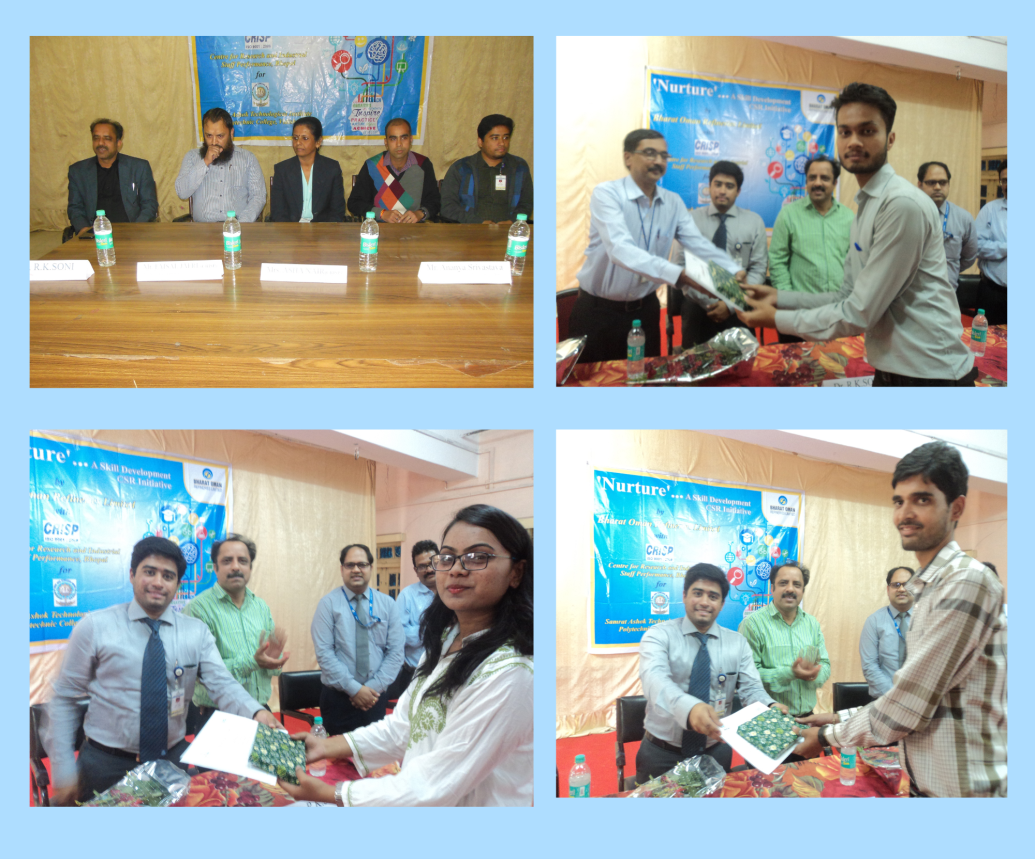
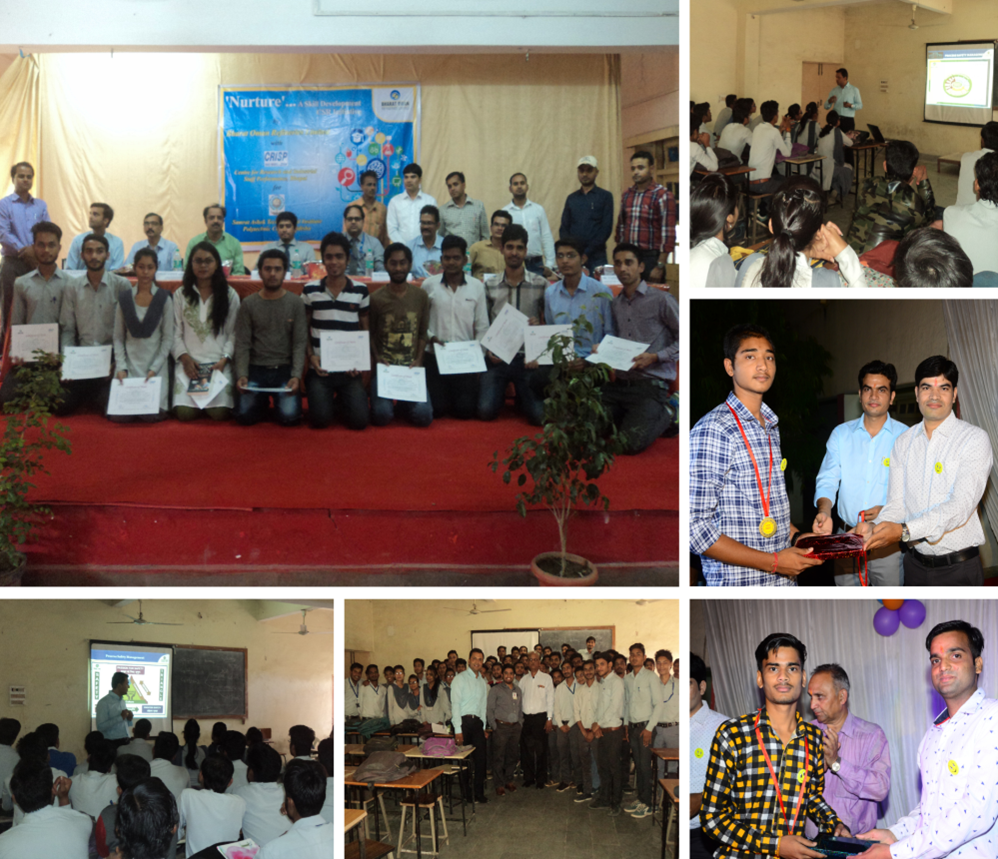


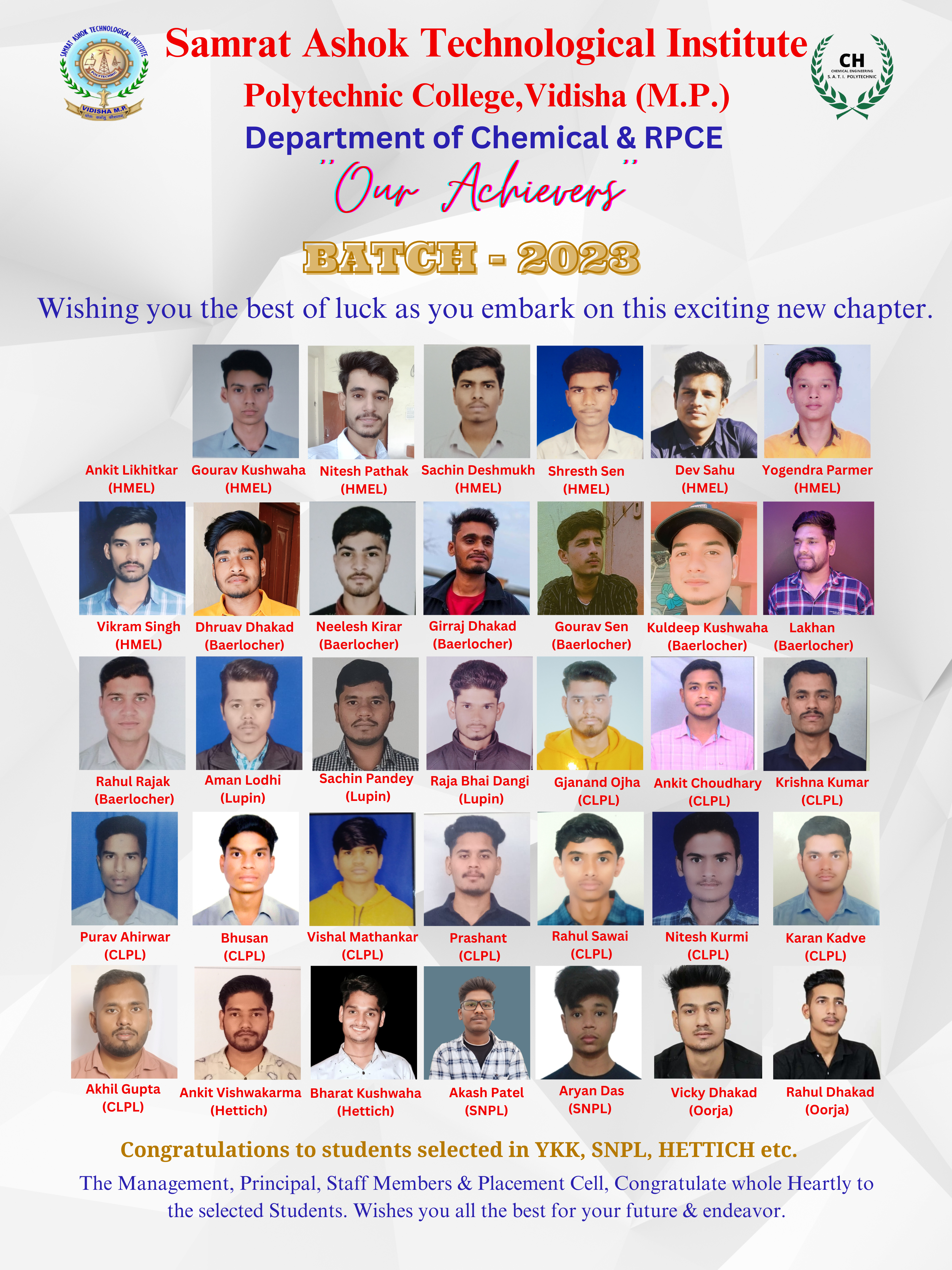
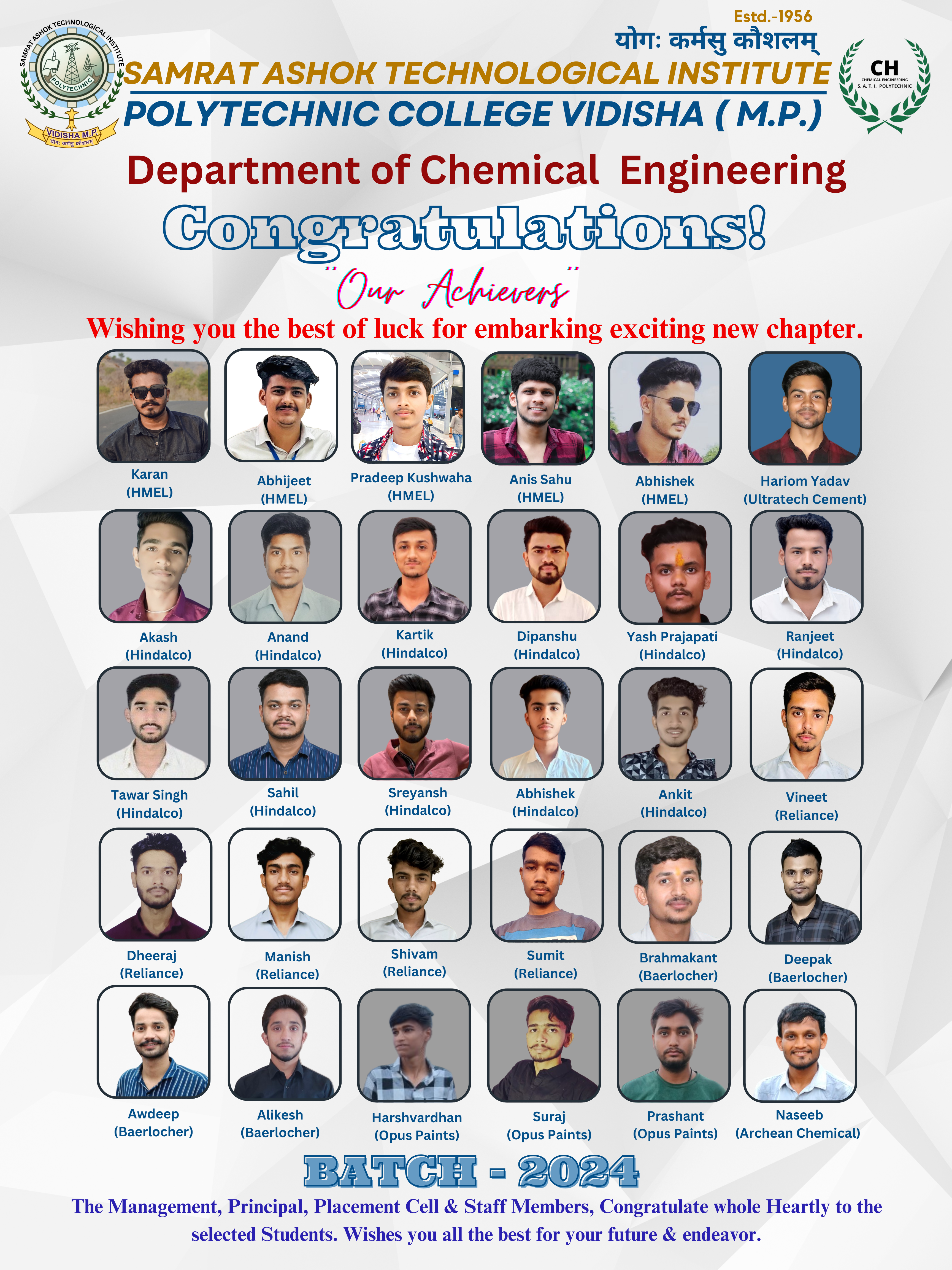
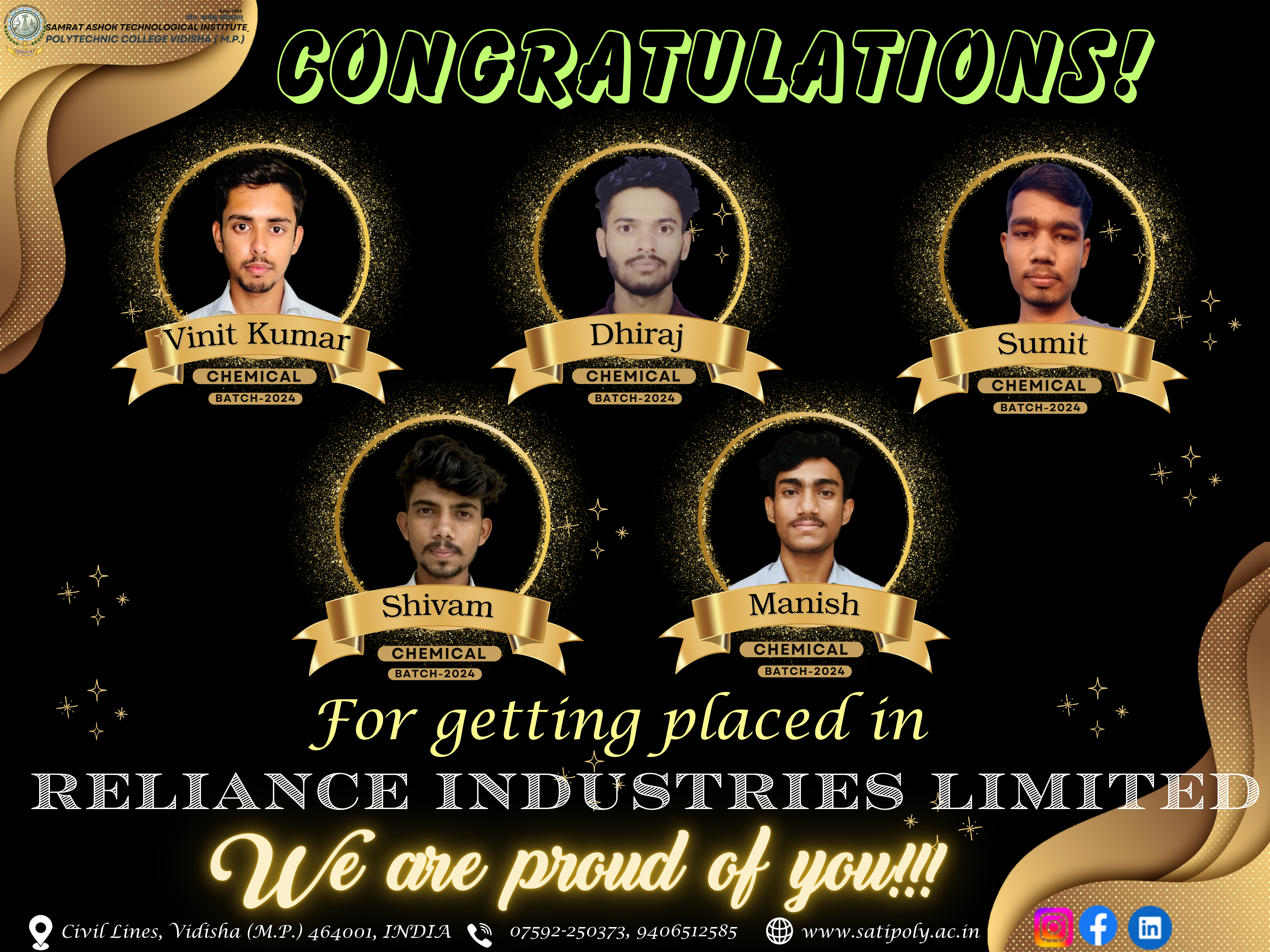


DEPARTMENT ACTIVITIES:
In the context of a chemical department, there are various activities that can enhance learning, practical exposure, and knowledge sharing. Here are two common activities: industrial visits and expert lectures.
Industrial visits provide students or professionals with an opportunity to visit chemical manufacturing plants, research facilities, or other relevant industries. These visits aim to: Enhance understanding: Observing real-life operations and processes helps students or professionals grasp the practical aspects of chemical engineering and the application of theoretical concepts. Safety awareness: Industrial visits emphasize the importance of safety protocols, hazard management, and adherence to regulatory standards in chemical industries.
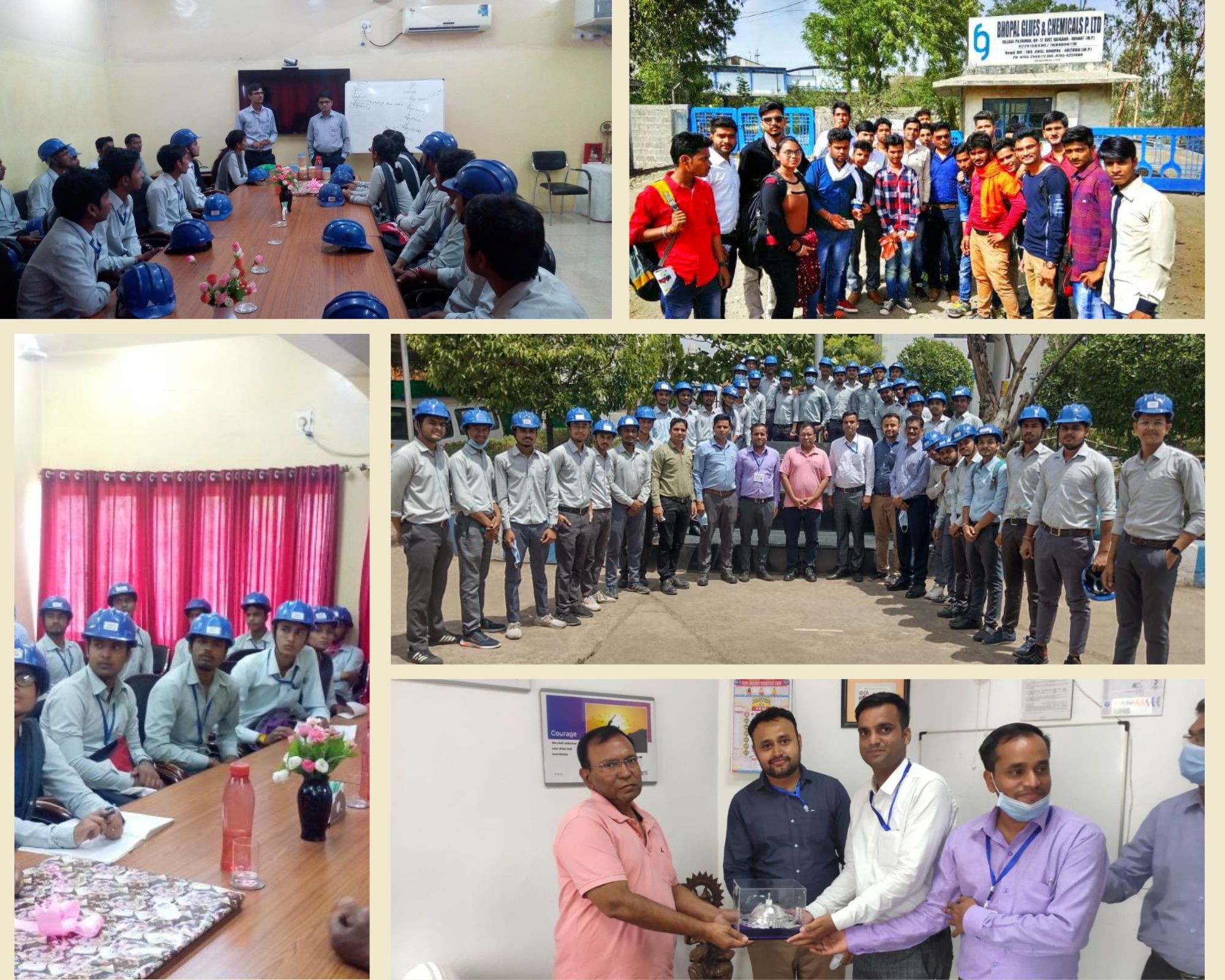
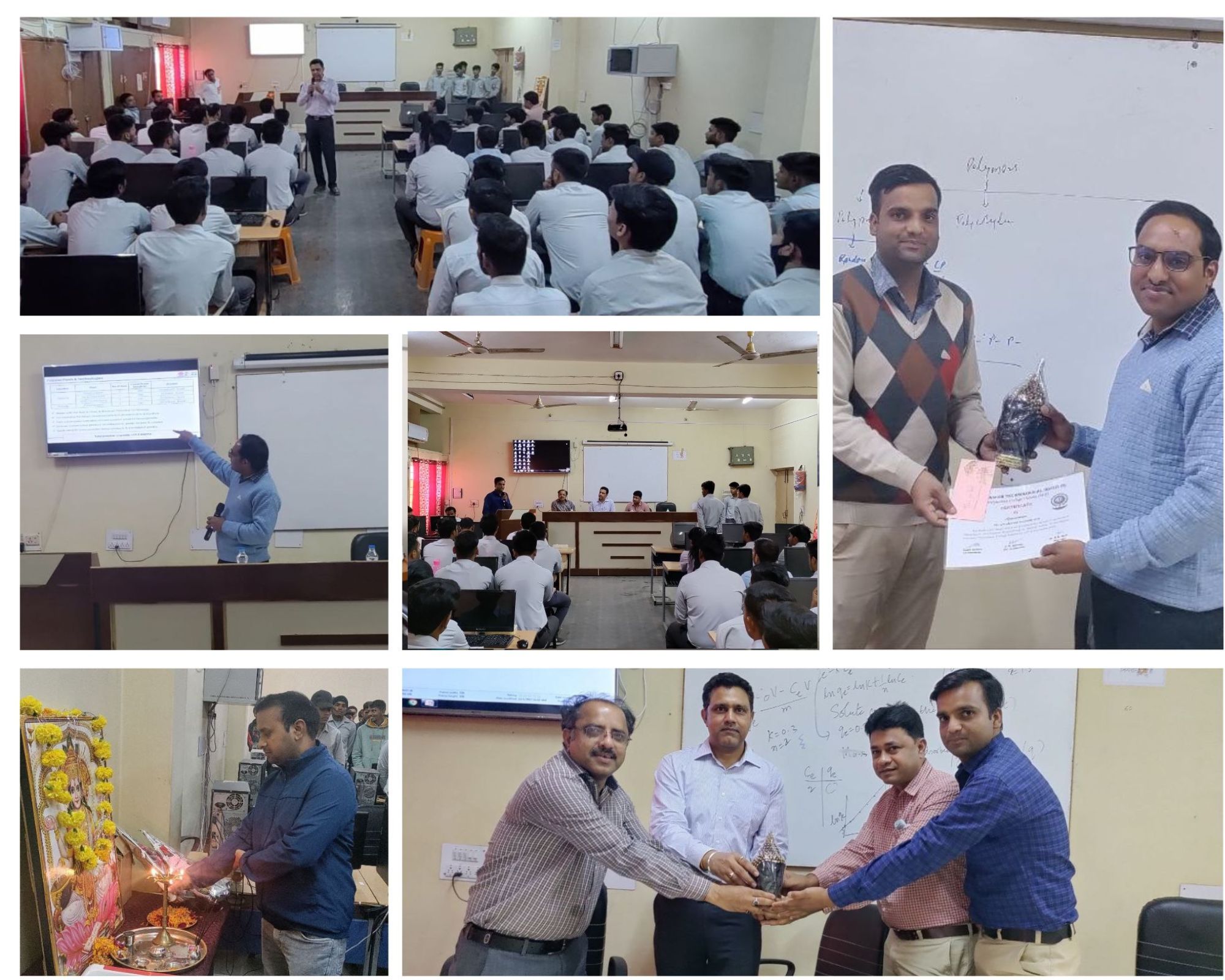
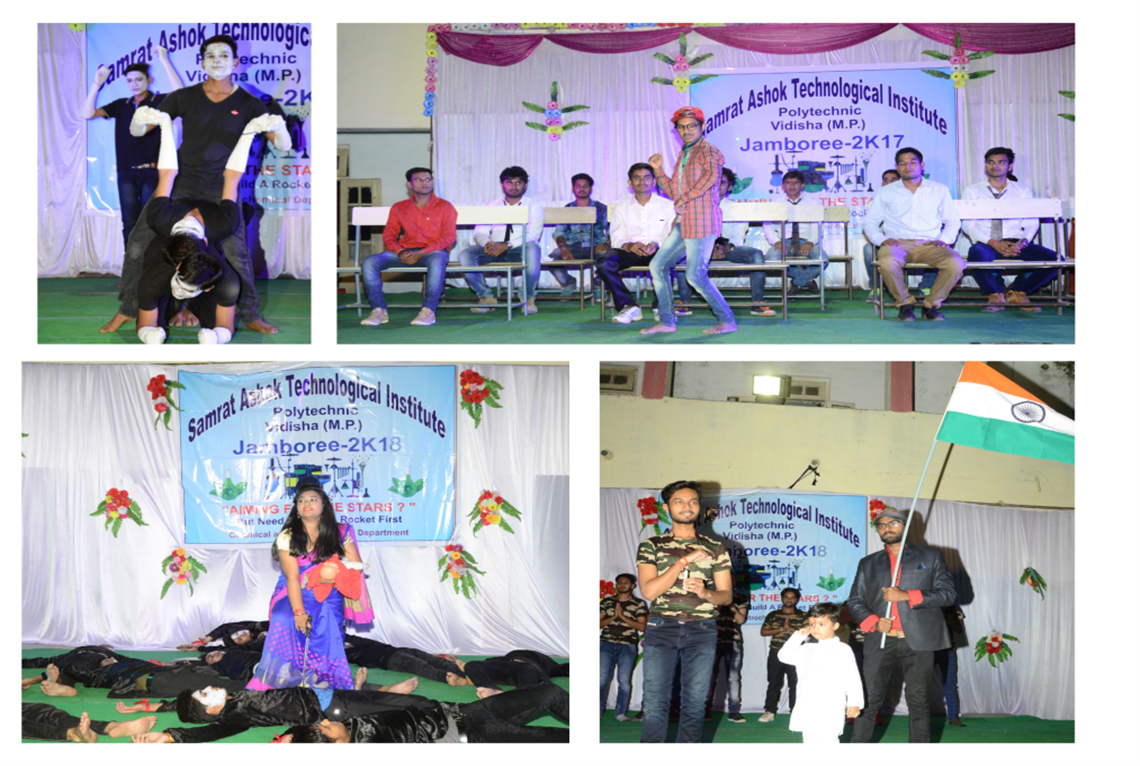

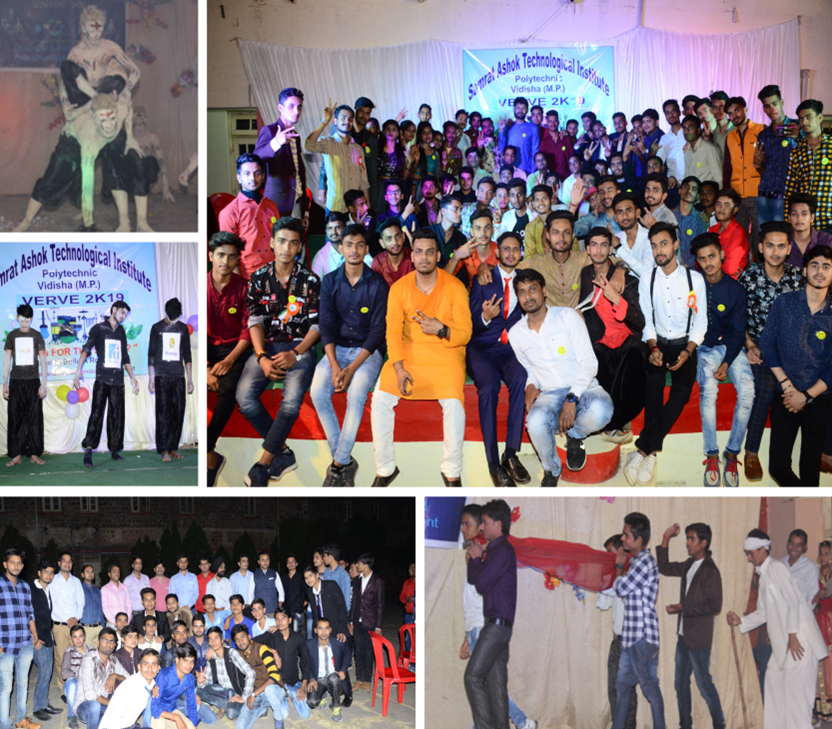
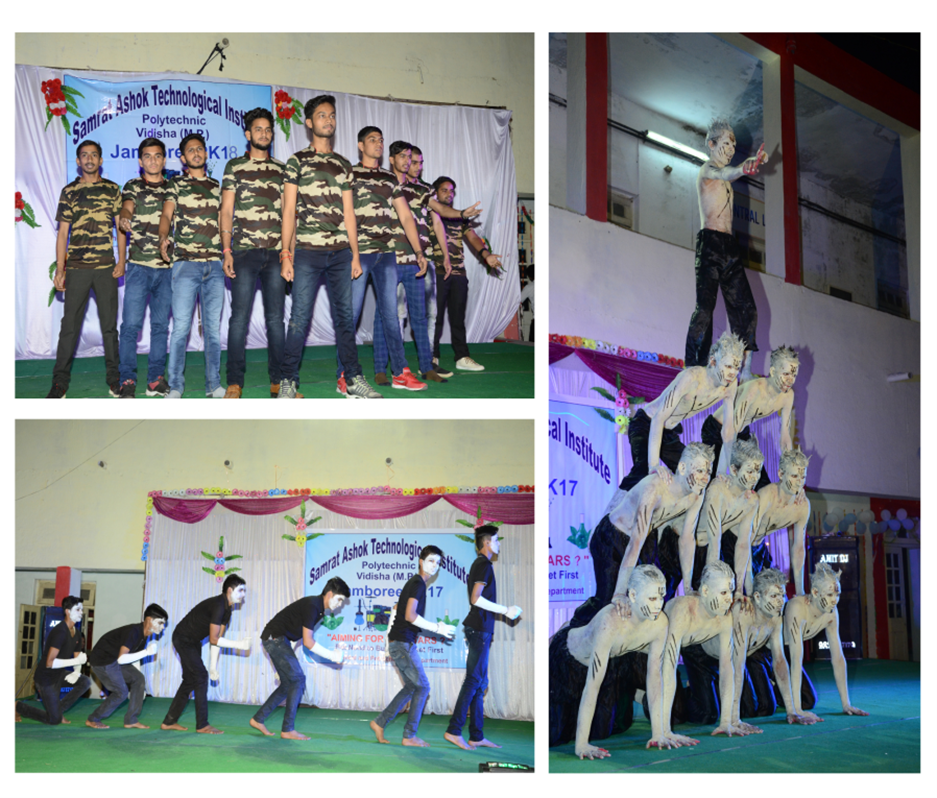
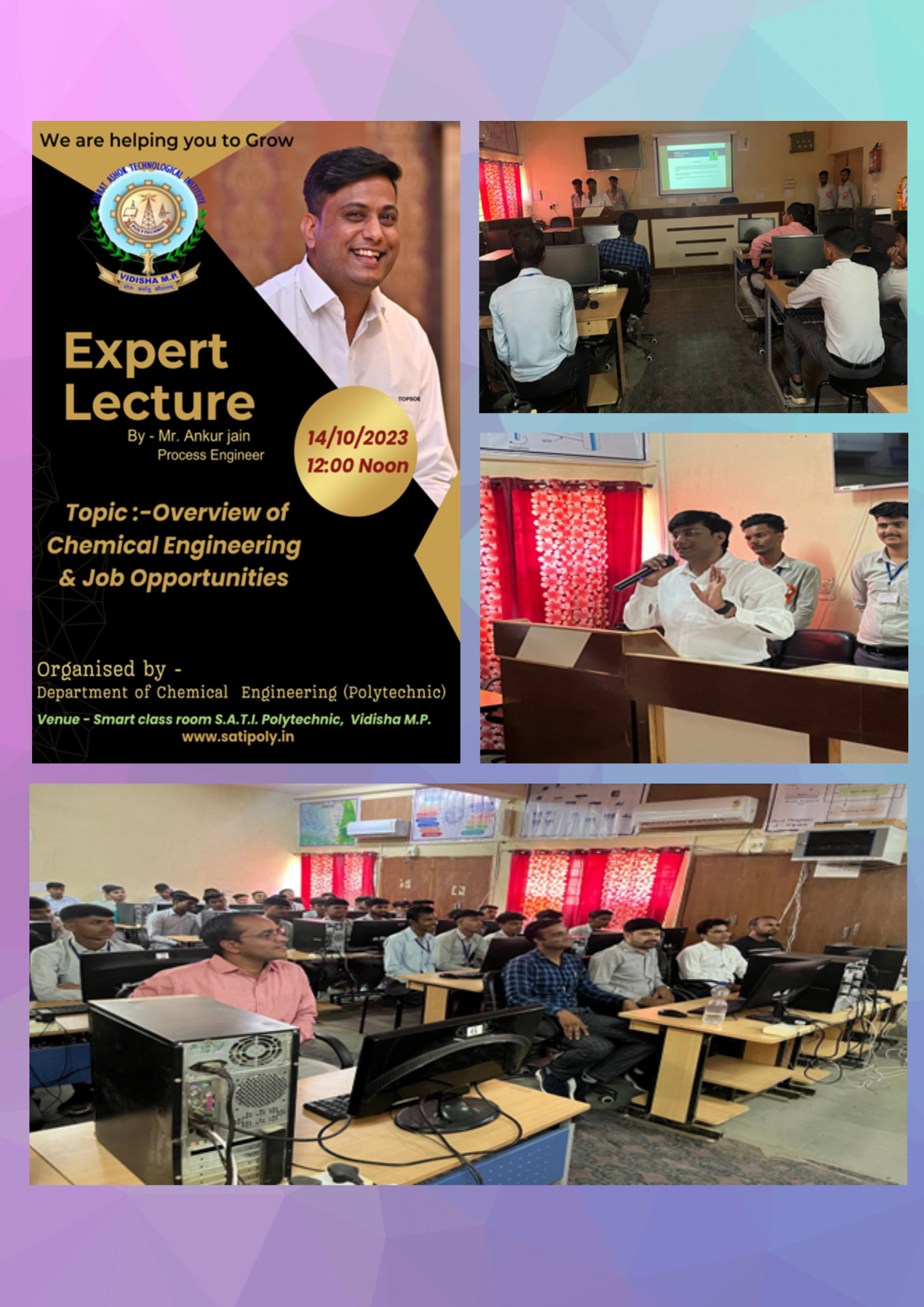
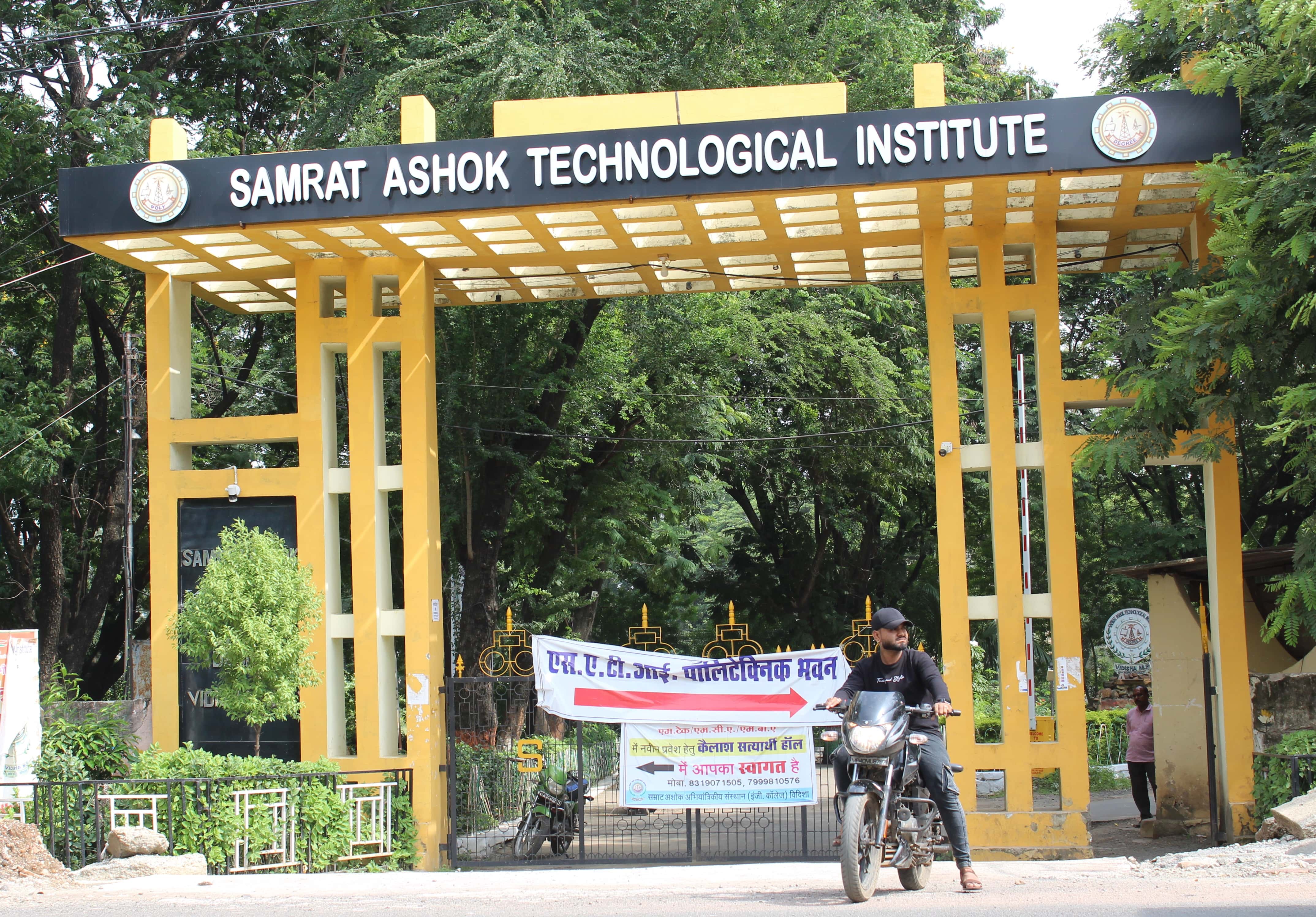

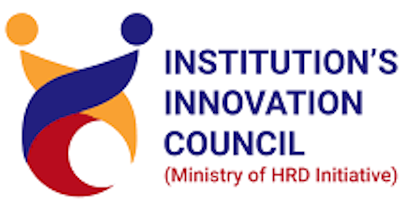
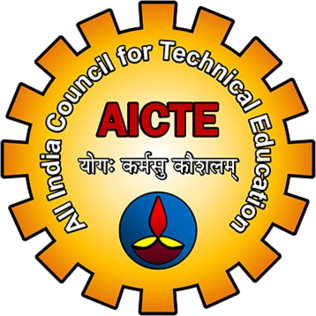
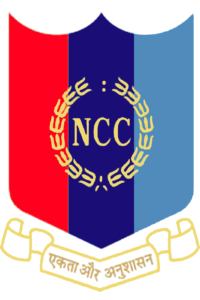
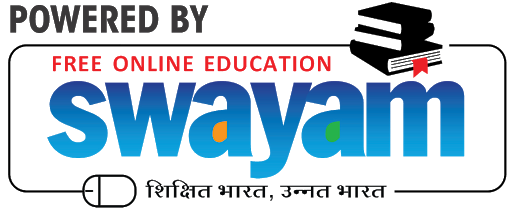
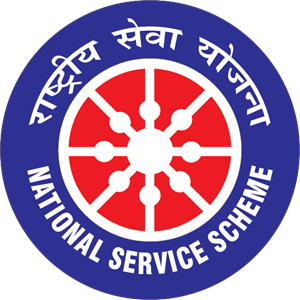
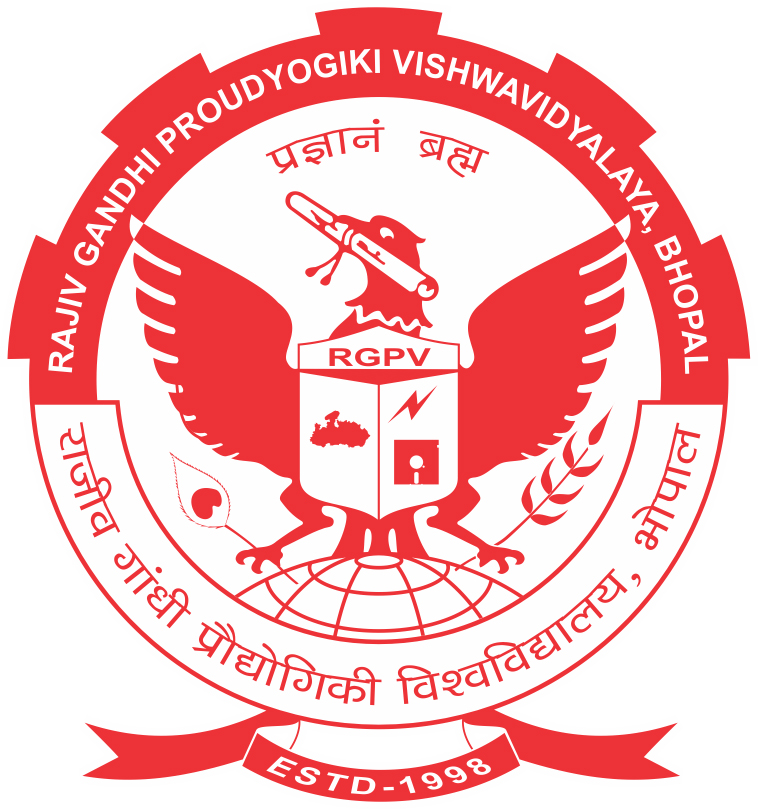
PLACEMENT